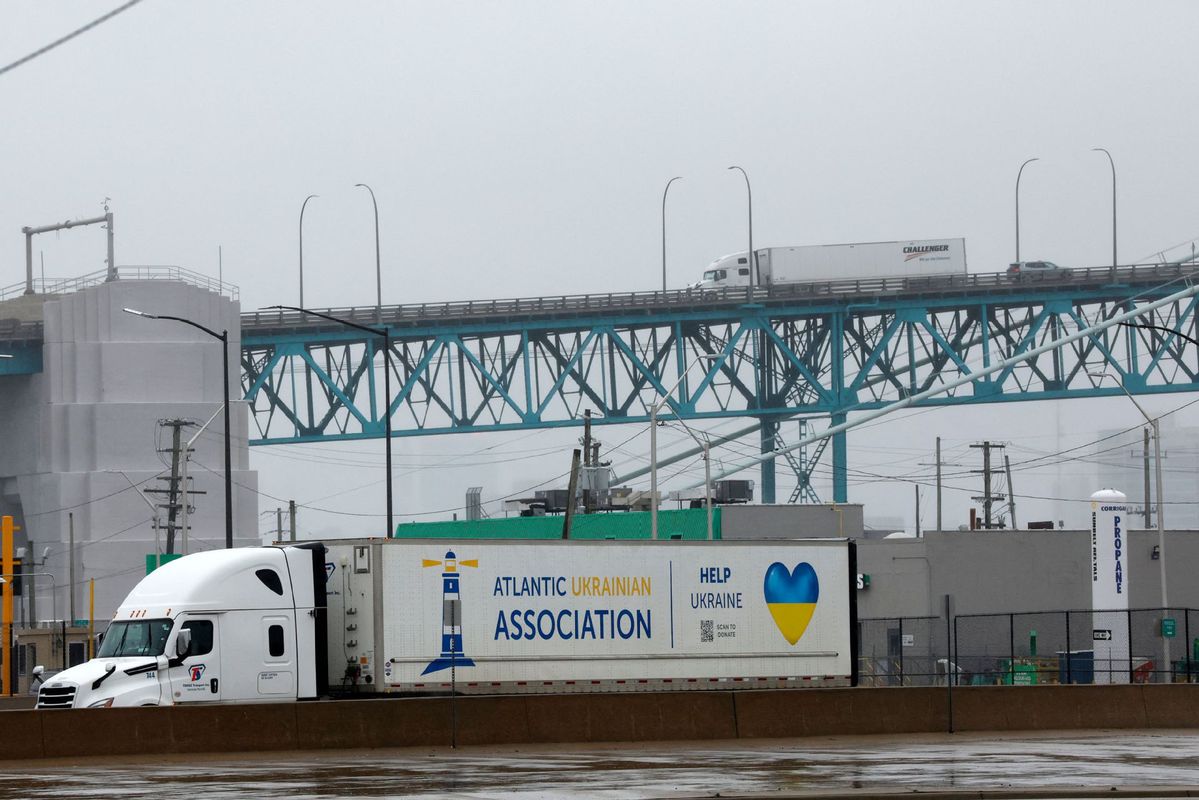Economists: US tariffs could reshape Canada’s labor market


With the United States raising trade barriers, Canada's manufacturing sector faces mounting pressure, which economists said could lead to job losses and broader economic fallout.
Canada's labor market and key industries could face significant disruption if the United States moves forward with new tariffs, said Mario Seccareccia, an economist and professor emeritus at the University of Ottawa.
He noted that the economic fallout could be particularly severe for sectors heavily tied to cross-border trade.
"If the US imposes broad tariffs, this will have a direct effect on Canada because of the high degree of trade integration," Seccareccia told China Daily.
"We are not just trading partners; it's a structural relationship you can't just pick up and move," he said.
One of the most affected industries would be manufacturing, particularly in Ontario and Quebec, where many firms rely on exporting components to US factories, Seccareccia said.
"Canadian manufacturing is deeply intertwined with US industry, particularly in the automotive sector," he said.
He mentioned the tariffs will drive up costs, reduce competitiveness and ultimately lead to job losses.
"It's the knock-on effects that are important. If you close an auto plant, even the restaurant next to it might disappear," he said.
He pointed out that previous US tariff policies have demonstrated how interconnected the two economies are.
"If you slap a tariff on auto parts, Ontario's sector could be completely devastated. ... It's a poker situation. We don't know the wild cards yet," he said.
"Some companies were able to adapt, but many suffered, and jobs were lost. If similar tariffs return, we could see that scenario, but with even broader consequences."
At a news conference on Wednesday, Canadian Labour Congress (CLC) President Bea Bruske called on the federal government to deliver urgent and robust support for affected workers, industries and communities.
"Over 1 million jobs. That's what's on the line. These reckless and unjustified tariffs from President Trump are a direct attack on Canadian workers, our industries and our economy," said Bruske.
Bruske said that 123,000 jobs in Canada's steel and aluminum industries and more than 587,000 auto and supply chain jobs are at risk.
"These are not just numbers on a spreadsheet," added Bruske. "These are real people, real families and real communities who are already stretched to the brink. The time for warnings is over. This is real, and we need immediate action."
Seccareccia said that the labor market repercussions could be widespread, affecting not just factory workers but also businesses that support trade-dependent sectors.
"It's not just the big manufacturers. Small and medium enterprises that provide services and supplies to these industries will also feel the squeeze," he said.
"For every auto plant worker affected, there are multiple supply chain businesses that depend on them," he said.
Seccareccia also noted the broader economic logic behind the tariff strategy. "Tariffs are often justified as a way to protect domestic jobs, but in reality, they lead to inefficiencies and higher costs for consumers," he said.
"Tariffs are like shooting themselves in the foot. It's insane, and I can't see this lasting long," he said. "Higher tariffs create what we call stagflation — simultaneously rising prices and unemployment."
Canadian Prime Minister Mark Carney said on Thursday that Canada will retaliate against US President Donald Trump's 25 percent auto tariffs by imposing matching duties on vehicles imported from the United States.
At a press conference on Parliament Hill, Carney said Canada's counter-tariffs will hit all vehicles that do not comply with the US-Mexico-Canada Agreement, along with any non-Canadian content in compliant vehicles.
"The president's actions will reverberate here in Canada and across the world," the Canadian prime minister said at a news conference. "They are all unjustified, unwarranted and in our judgment misguided."
Seccareccia urged long-term solutions. "Diversify trade partners — not just bilaterally with the US. We're vulnerable because we built north-south links, not global ones."
He noted the best response is not to engage in a tit-for-tat trade war but to push for cooperative economic policies that benefit both sides.
"Canada should work with international partners to counteract the negative effects rather than responding with its own set of protectionist measures," he said.
He also mentioned the potential long-term consequences for North American trade relations.
"If these tariffs persist, companies will eventually start to rethink their supply chains, and some may shift production elsewhere," he said. "That could mean job losses not just in Canada but in the US as well."































